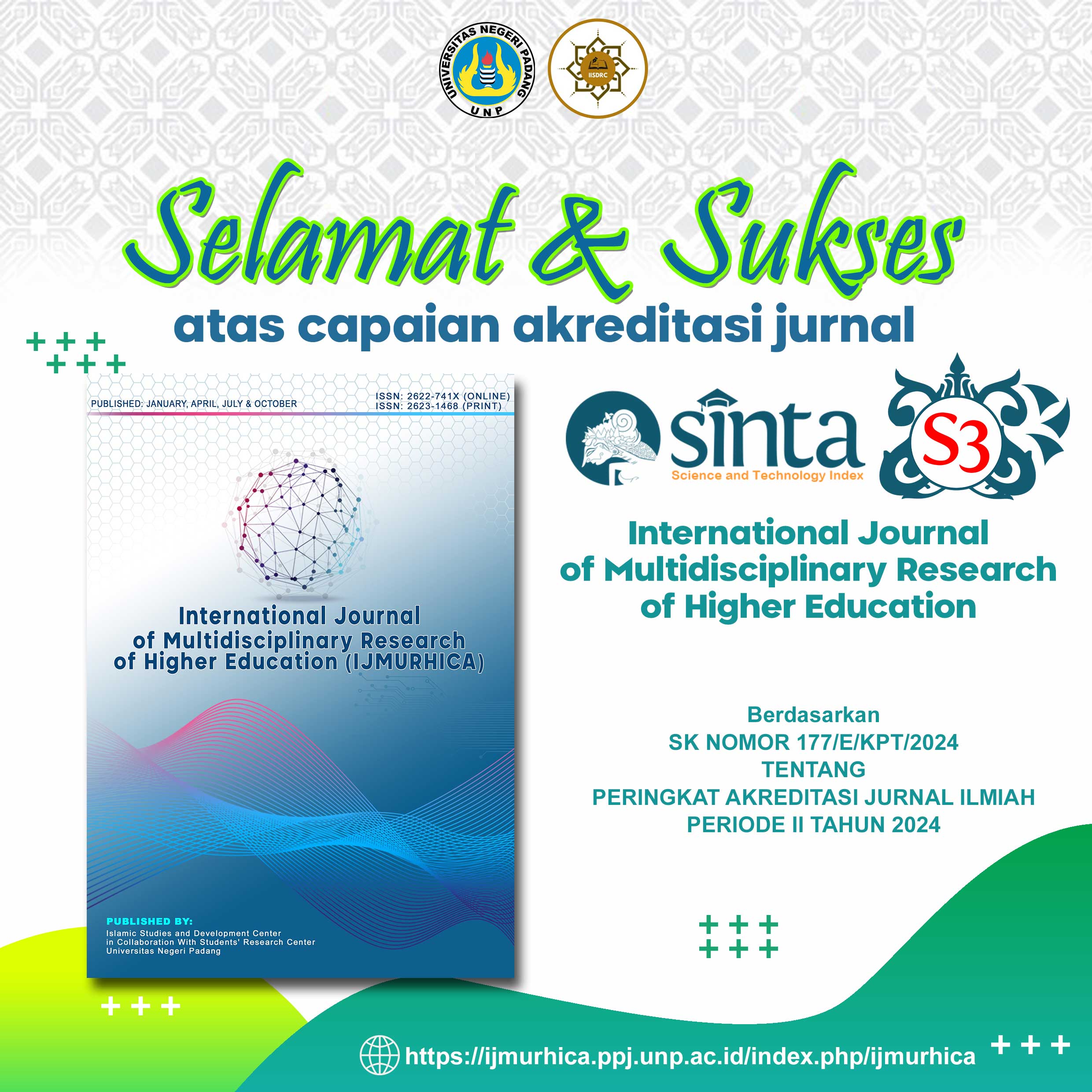The Influence of Environment and Discipline on Work Satisfaction and Its Implications for Productivity
DOI:
https://doi.org/10.24036/ijmurhica.v8i4.429Keywords:
Environment, discipline, work satisfaction, productivityAbstract
One company in Indonesia faces challenges in the work environment, such as room layout, internal communication, workload, and limitations in employee development. These conditions cause dissatisfaction that has the potential to reduce productivity. It is necessary to identify the factors that affect employee job satisfaction. This study aims to determine and analyze the influence of the environment and discipline on job satisfaction and its implications for productivity at PT Asyatek Indonesia. The research method used was quantitative, with data collected through a questionnaire distributed to 92 respondents, focusing on employees in the production and project areas, which was then analyzed using the SmartPLS statistical application. The results of this study show that the work environment has a positive and significant effect on job satisfaction, with a coefficient value of 0.303 and a t-statistic of 2.014>1.96, p-value 0.045<0.05. Furthermore, work discipline has a positive and significant effect on job satisfaction, as evidenced by a coefficient value of 0.322 and a t-statistic of 2.665>1.96, p-value 0.008<0.05. Then, job satisfaction has a positive and significant effect on work productivity, with a coefficient value of 0.343 and a t-statistic of 3.399>1.96, p-value 0.001<0.05. Furthermore, the work environment has a positive and significant effect on work productivity, with a coefficient value of 0.483 and a t-statistic of 4.433>1.96, p-value 0.000<0.05. Work discipline has a positive and significant effect on work productivity, as evidenced by a coefficient value of 0.480 and a t-statistic of 4.354>1.96, p-value 0.000<0.05. The implications of this study are improvements in the work environment and job satisfaction as well as employee productivity. A consistent culture of discipline is important to continue to strengthen through firm but fair policies as an indicator of successful human resource management.
Downloads
Downloads
Published
How to Cite
Issue
Section
License
Copyright (c) 2025 Yosie Kristin Pandriyani, Tata Rustandi, Angrian Permana

This work is licensed under a Creative Commons Attribution-ShareAlike 4.0 International License.






